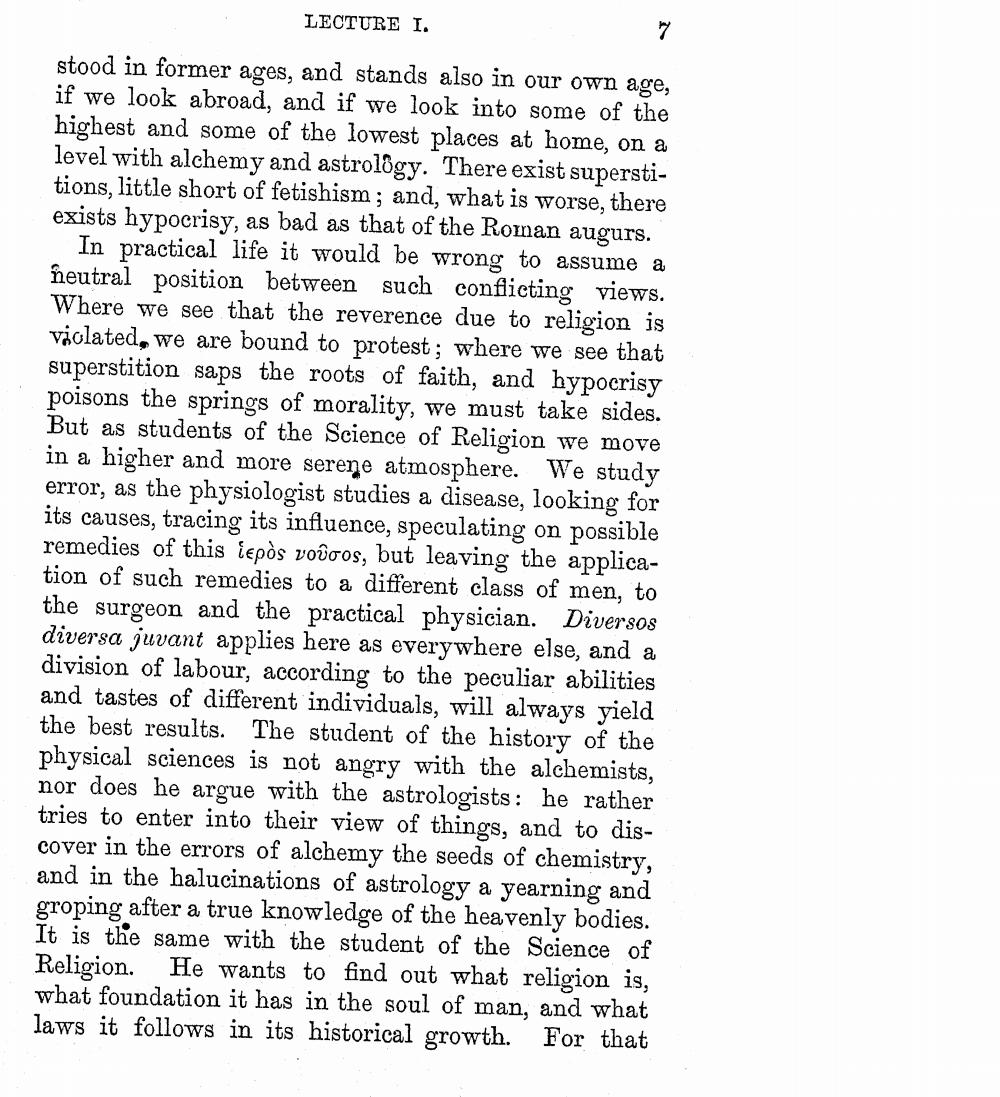________________
LECTURE I.
stood in former ages, and stands also in our own age, if we look abroad, and if we look into some of the highest and some of the lowest places at home, on a level with alchemy and astrology. There exist superstitions, little short of fetishism; and, what is worse, there exists hypocrisy, as bad as that of the Roman augurs.
In practical life it would be wrong to assume a neutral position between such conflicting views. Where we see that the reverence due to religion is violated, we are bound to protest; where we see that superstition saps the roots of faith, and hypocrisy poisons the springs of morality, we must take sides. But as students of the Science of Religion we move in a higher and more serene atmosphere. We study error, as the physiologist studies a disease, looking for its causes, tracing its influence, speculating on possible remedies of this iepòs voûoos, but leaving the application of such remedies to a different class of men, to the surgeon and the practical physician. Diversos diversa juvant applies here as everywhere else, and a division of labour, according to the peculiar abilities and tastes of different individuals, will always yield the best results. The student of the history of the physical sciences is not angry with the alchemists, nor does he argue with the astrologists: he rather tries to enter into their view of things, and to discover in the errors of alchemy the seeds of chemistry, and in the halucinations of astrology a yearning and groping after a true knowledge of the heavenly bodies. It is the same with the student of the Science of Religion. He wants to find out what religion is, what foundation it has in the soul of man, and what laws it follows in its historical growth. For that




